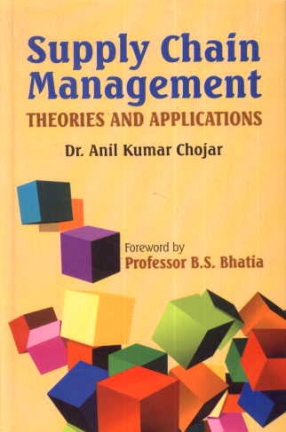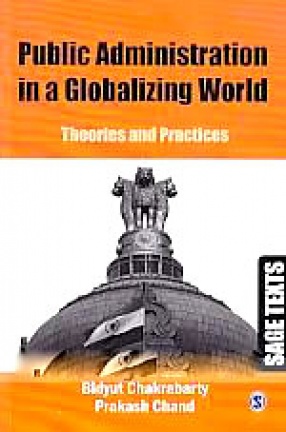Supply Chain Management: Theories and Applications
Supply Chain Management: Theories and Applications addresses the core concepts and issues facing the industry in a simplified form. This book can be used by academia, post-graduate management students and practitioners as it presents industry specific analysis, case studies, and reviews of several research papers. Owing to this book’s direct relevance to commercial firms, managers handling supply chain coordination, logistics and warehousing operations will benefit from it.
This book is divided into two parts. While first part is devoted to concepts that are spread over eight chapters, the second part has eleven chapters. The part I, concentrates on key concepts of supply chain management (SCM) its main focus key issues logistics supply chain uncertainty and bullwhip effect, drivers of supply chain performance, inventory control systems, inventory costs, types of inventory, different inventory models, lean operations, use of visual Kanban systems, distribution management, transportation economics, role of warehouses in product mix assortments, warehouse layout and design, the role of purchasing, its interface with other departments, particularly with logistics, supplier selection and evaluation, the role of information in supply chain, customer order fulfillment and role of logistics in manufacturing and marketing operations.
The part II deals with the application of supply chain concepts in agri-business, contract farming, building supply chains of horticultural produce for retail operations, the role of e-commerce and impact of information integration in multi dimensional food chain, the supply chain network management model, impact of globalization on supply chains and integration of small farmers in cross border supply chains, management and control of international supply chains of horticultural products, food quality and safety in food supply chains, salient features of the collaborative, planning, forecasting and replenishment (CPFR) model for improving the supply chain coordination, and overview of Indian agricultural sector for meeting the demand and supplies of primary food products, price policy, food management, procurement of food grains and role of buffer stocks.
The book sis recommended for management students and managers in the commercial firms specializing in supply chain management operations.
Get it now and save 10%
BECOME A MEMBER








Bibliographic information